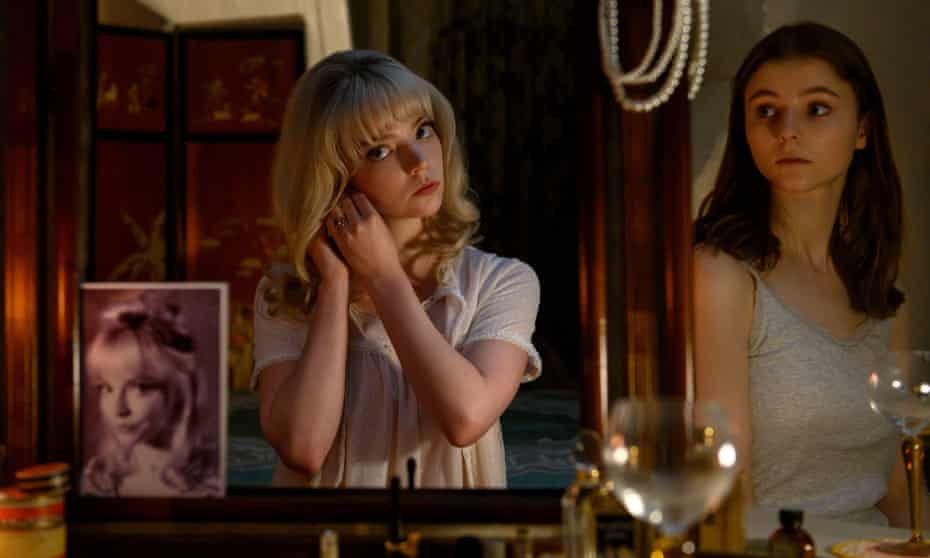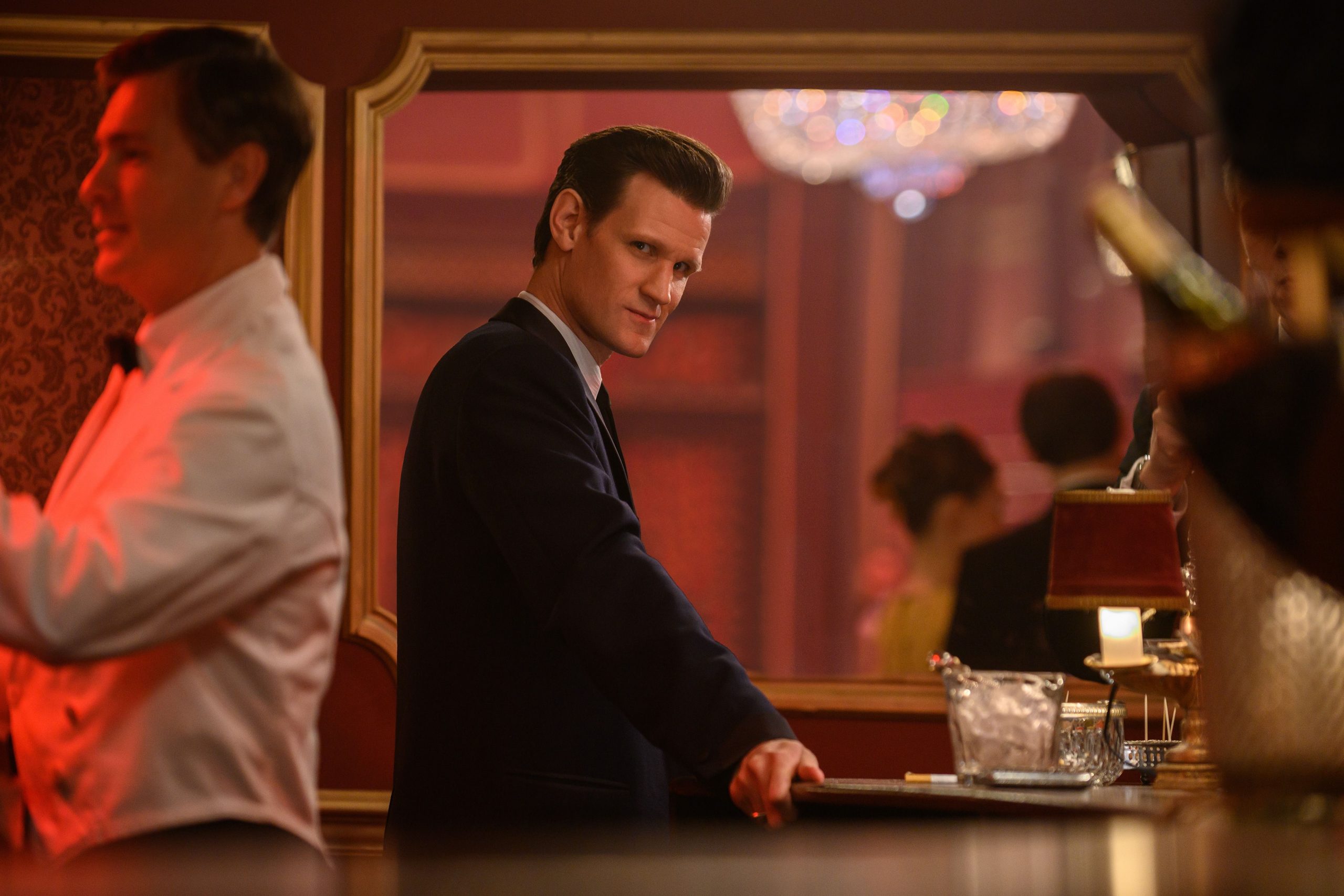Like it or not, Edgar Wright has a brand. Wright wouldn’t like it, because it suggests limitations to how far he can stray from his normal parameters before the audience won’t join him on the expedition. No filmmaker wants to feel pigeonholed – okay, maybe Wes Anderson – but Wright was actually protecting this brand when he quit Ant-Man, correctly surmising that Marvel didn’t want an “Edgar Wright movie,” they wanted a Marvel movie. Implied there is that an Edgar Wright movie has a certain look and feel and common characteristics.
Last Night in Soho is not an “Edgar Wright movie.” Its problem is not that Wright has made what boils down to a giallo movie, a love letter to Dario Argento in spirit and sometimes in substance. Wright should be able to make a horror movie if he wants to. He should be able to tiptoe off brand.
The problem is that his approach is an entire about-face from his core ironic sensibilities, the ones we saw in his collaborations with Simon Pegg and Nick Frost. To keep collaborating with those guys would be the Wes Anderson way to do it, and Wright is no Anderson. However, to make a totally earnest psychological horror, in which there is not even a conceivable role for Frost or Pegg, is going too far afield. His audiences might not follow, but neither should critics. Its narrative and logic deficiencies make the film unsuccessful no matter who is directing it.
We’re ushered in with one definite Wright trademark: a wall-to-wall carpeting of popular music, in this case the Brit pop of the 1960s. For a moment it seems this might even be when the film is set, as the sheltered country upbringing of Ellie Turner (Thomasin McKenzie) involves a cherished vinyl collection and a wardrobe that recalls that era. Ellie’s voyage to attend a London fashion school reveals mobile phones and other modern conveniences, but Ellie is still out of place and out of time, especially compared to her fast-living classmates. She’s about to go out of time rather literally.
Ellie has long seen images of her deceased mother in mirrors, a tip-off to her possible mental state, but once she moves into a loft apartment owned by a cantankerous older woman (Diana Rigg), she starts seeing someone new in the reflected image. This is Sandie Collins (Anya Taylor-Joy), a 1965 Londoner who was trying to make it in the big city like she is. (The year is identified by the Thunderball marquee on an opulent theatre once Ellie steps into Sandie’s world.)
At first seduced by what she perceives as Sandie’s glamourous life, Ellie soon realises this is a nightmare rather than a dream. Sandie was used and abused by the men she hoped would help make her a star, particularly a talent manager named Jack (Matt Smith), and Ellie begins to be haunted by the things that happened to Sandie. The bleeding through of that world into Ellie’s starts to affect her real life and her budding relationship with a boy she meets, John (Michael Ajao).
It’s not a flawed setup for a movie, and for the first half you find yourself in a suspended wait-and-see mode, trusting in Wright to deliver the goods. It’s a long and ultimately fruitless wait. In his first time dabbling in straight horror – having covered comedy horror with Shaun of the Dead – Wright acts like a man scaring up all the horror tropes he can find and fitting them into one film. There are faceless figures. There are arms bursting through walls and floorboards. There are arterial blood sprays. There are people sitting bolt upright in bed, awakening from a nightmare, then awakening a second time from a second nightmare. It’s all a little tedious and more than a little hackish.
The bigger problem with Last Night in Soho, though, is that it doesn’t have much idea what it wants to do with these characters or say about them. It’s like he got as far as the trick shots in mirrors, in which McKenzie and Taylor-Joy mimic each other’s movements, and didn’t know where to go next. On the surface, there’s an indignant indictment of awful men who chew up and spit out women, which describes pretty much everyone in this film except for John, the kind neighbourhood guy who takes to Ellie. But the apparent flip side of that equation, an agency for the film’s female characters, is sorely lacking. The narrative consigns Sandie to a perverse victimhood from which she makes no effort to extract herself, and leaves Ellie just to observe her and become more unhinged from her own present day reality. There’s a lot of watching here, little doing. Add in that Ellie is tormented by mean girls at her school, and you’ve got a film that might actually be opposite of what Wright intended on gender empowerment.
Wright wastes two talented actresses in the process. McKenzie and Taylor-Joy have taken cinema by storm in the past five years, appearing in one high-profile project after another, but this film can’t do right by them. McKenzie, who tends to give internalised performances, is forced into wide-eyed panic mode for much of this film, straying from her own brand at her peril. Conversely, Taylor-Joy’s underwritten cipher causes her to recede from this narrative, diminishing her usually striking presence.
Wright also clearly has a villain problem. One of the things that undid his last film, Baby Driver, was the absurd way it promoted an innocuous character to the role of Big Bad in the final act. In the process, Wright turned another character, who had been profiling as this ultimate villain, into an abrupt redemption candidate and sacrificial lamb. Without going into specifics about Last Night in Soho, the same sort of dynamic is present here, including red herrings that are truly frustrating when revealed, and a tendency to lay blame at innocent feet.
If one were to analyse Last Night in Soho purely in a vacuum, taking Wright’s name off it, it’s possible it’s slightly more of a success. There’s never any question Wright can employ disparate ingredients in a watchable way, and giallo fans will certainly get a little thrill from the slashed throats.
With audiences who make viewing selections based on their expectations, though, it’s a pretty big disappointment. This is a style exercise searching for an idea. Even in some of his best films, like Scott Pilgrim vs. the World, Wright rarely opts to be brief when he can overload it with what he thinks is cool. In Last Night in Soho, he hits the same notes with an exhausting regularity, and they were never the right notes to begin with.
Last Night in Soho is currently playing in cinemas.




